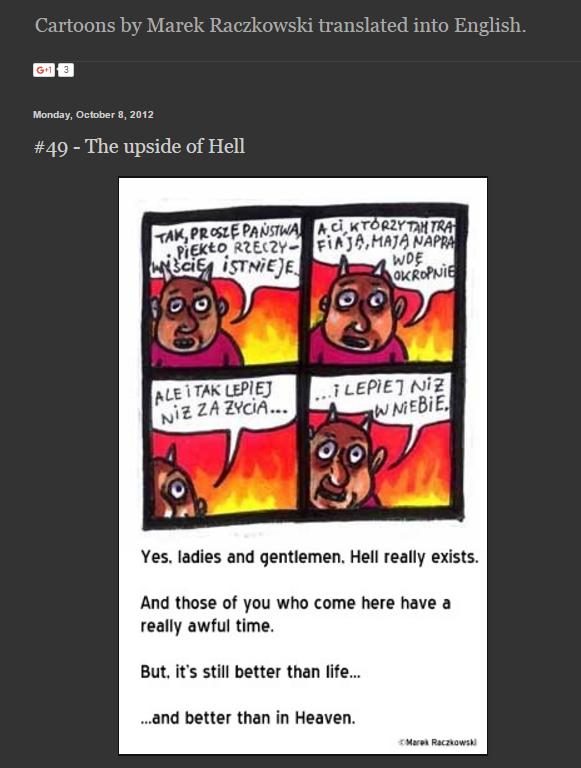Preferring Hell to Heaven: Machiavelli August 25, 2014
Author: Beach Combing | in : Medieval, Modern , trackbackWe all dream every night – a simple physiological fact – and yet most of these dreams are forgotten by the individual and even those that are remembered rarely enter history. However, on occasion a dream slips through into record, either because it changes the world or because it represents a life. ‘Machiavelli’s dream’ is one of the latter. It begins banally enough. Machiavelli, the villainous mid-wife of the modern world and notorious teacher of evil (bad on the surface but worse underneath), was coming to the end of his days. But before crossing the bar he was given a dream (21 June 1527) from the Gates of Horn. He saw a ragged bunch of poorly dressed men who told him: ‘we are holy and are heavenbound’. Afterwards he saw a group of great philosophers, Plato and Tacitus among them, and these stated: ‘We are damned and are hellbound’. The most interesting thing about the dream is not the banal opposition between the ignorant saints and the learned sinners, but Machiavalli’s reaction to it. Nicky noted that he personally would be far happier in hell with the great minds of the ages rather than passing through the hellish boredom of heaven.
Others in the Middle Ages had proved irreverent or daring about hellfire: Gottfried of Strasbourg and Heloise (if those letters are genuine) jump to mind. But Machiavelli is not doing this for sex or for love or even for principle. He is doing this to get some cheap laughs from his friends at the end of a life in which he always enjoyed treading on the toes of convention: one of the reasons for believing this story is that it echoes thoughts in Machiavelli’s own writing, particularly a memorable passage in his play Mandragola. He may, of course, have invented the dream for kicks or more likely one of his friends did. Coming at the very beginning of the modern age, this dream, in any case, spells as well as anything else the collapse of the medieval order that had held Europe together for a thousand years from the end of the Roman Empire to the discovery of the Americas. Others who came after including Swedenburg, Blake and even Emily Bronte would wonder about the benefits of hell and this entered the culture – my grandmother used to worry aloud about the tedium of paradise – but Machiavelli started the trend of blurring good and evil in the afterlife. Other example of hell lovers: drbeachcombing At yahoo DOT com
31 Aug 2014: S&B writes ‘your latest post reminded me with a quote usually attributed to Mark Twain: heaven for the climate and hell for the company’; Chris S writes along similar lines an old joke, ‘Basically, I’d hear people remark that if they went to hell they’d be far too busy shaking hands and catching up on old times to care where they are.’ Thanks, guys!
24 Sep 2014: SMeyers writes, In response to your post on Machiavelli and the story that he was said to have preferred hell to heaven, here are two examples of that kind of thinking: The first example is fairly recent. In the Billy Joel song “Only the Good Die Young”, there is a verse that states:
“They say there’s a heaven for those who will wait.
Some say it’s better but I say it ain’t.
I’d rather laugh with the sinners than cry with the saints
The sinners are much more fun.”
The second is a much more somber and serious one. Hatuey was a Taino (the tribe of natives that Columbus ran into on his first voyage to the New World) chief who led a campaign against the Spanish in the Caribbean. Eventually, Hatuey and his forces (augmented by a number of escaped African slaves) went to Cuba to continue their campaign. But, Hatuey and his men were captured by a large Spanish force in early 1512. In February of that year, Hatuey was sentenced to death by being burnt at the stake. While he was tied to the stake, a friar approached him and explained that, if he embraced Christianity and the teachings of the church, his soul would be saved from an eternity in Hell although he would still be executed. Hatuey then asked the friar if there are Christians in Heaven. When the friar answered in the affirmative, Hatuey said that he would prefer going to Hell.
Thanks!
3 May 2015: EC writes in with this treasure. The link to a very promising site is here.




